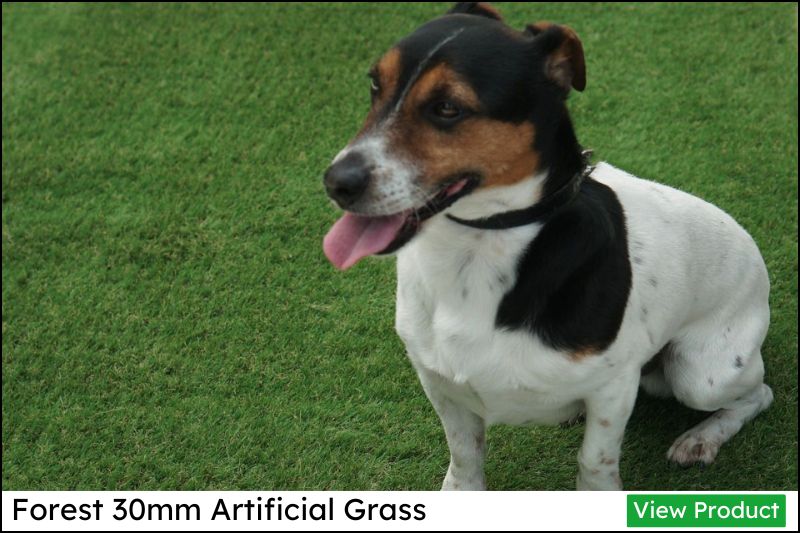Your dog will
enjoy playing on artificial turf in the interim. They will be able to perform
all of their regular activities without any issues. They have no trouble
playing, rolling over, jumping, or running. In addition, you may rest easy
knowing that they won't damage your grass or run up a big financial bill. If
you want to buy artificial grass for dogs, coloured grass, or more, check out Artificial Grass
GB!
Advantages of Artificial Grass for Dogs
Bid farewell to mud:
The main
benefit of artificial grass is that it stays dry and unmuddy even on wet days.
Dogs enjoy playing outside and running about, but they also enjoy bringing
their muddy paws inside the house. You can let your dog run around on fake
grass without having to worry about muck getting on your floors.
No Holes in Your Garden:
Dogs create
holes in the yard and dig, which adds to your workload. You won't need to be
concerned about any of that with artificial grass. Your dog can play and run
around without you worrying that the lawn will get damaged.
Less Frequent Dog Baths:
You don't
have to worry about how much mud and filth they'll bring inside your house as
they run about on the grass. You would have more time for other significant
things and wouldn't need to take as many baths.
Absence of Yellow Spots:
The natural
grass turns yellow when dog poop gets on it. The unfortunate news is that
turning it green again is not that easy. Conversely, synthetic grass maintains
its green colour even in the presence of impurities like dog poop.
Inside the House, No Lawn Clippings:
Your house is
considerably easier to keep when your dog doesn't get paw prints from lawn
clippings. Additionally, since your surroundings will stay clean for extended
periods of time, you might not need to utilize a Hoover cleaner.
Less Fleas and Bugs:
One of the
greatest responses to the query, "Is turf good for dogs?" is this
one. Because bugs prefer natural grass and dirt over synthetic turf, your pets'
fur is less likely to harbour pests if they spend time on the artificial turf.
This also implies that grass cannot enter your house, regardless of how often
your dog plays and rolls around.
Fewer Odours:
Artificial grass lacks organic materials like soil and roots, which can break down and
release a disagreeable odour, in contrast to natural grass. On the other hand,
organic matter from fallen leaves, animal faeces, and other detritus can build
up in natural grass and promote the growth of bacteria and other microbes.
These
microbes have the ability to create smells that are frequently connected to
natural grass. Artificial grass can produce less odour than natural grass since
it contains less organic matter for bacteria and other microbes to feed on.
Robust and Long-lasting:
The
resilience and durability of artificial grass are among its key benefits. Artificial
grass, when laid correctly, can last years of use before requiring significant
maintenance or replacement. Artificial grass is resistant to many weather
conditions, unlike genuine grass, which is quickly harmed by abrupt changes in
temperature.
Can dogs
damage grass? Yes, however, artificial grass would fare better against the
impact than natural turf because it is made to be extremely resistant to wear
and tear.
Drawbacks of Artificial Grass for Dogs
Increased Installation Costs Up Front:
Fake grass
can be more economical in the long run than natural grass, even with its
greater initial cost. This is because artificial grass requires less upkeep. In
the end, choosing to install artificial or natural grass should be determined
by weighing the upfront costs against the ongoing maintenance costs.
Sometimes Harmful Substances are Used in the Production of Low-quality Turf:
Can dogs play
on artificial grass? Not fully. Most likely, inferior materials and production
techniques are used to create artificial turfs of poor quality. Production
may involve the usage of hazardous substances that are bad for people, dogs,
and the environment, such as phthalates, lead, and cadmium. Using pet-approved
and safe lawn products free of hazardous chemicals is crucial to preventing
potential risks.
A Hose Down May Be Necessary for Cleaning Dog Poop:
The inability
of dog faeces to break down in the same way that they do on real grass makes
cleaning up after them more challenging and increases the risk of unpleasant odours,
unhygienic conditions, and damage to the artificial grass. For thorough
cleaning, a hose or other cleaning tools can be needed to remove all of the
faeces.
Warms Up in the Presence of Sunlight:
When
artificial grass is exposed to sunshine, it gets hotter than natural grass
because it is composed of plastic materials that have the ability to absorb and
retain heat. Even if producers have created cooling technologies to lessen the
heating effect, artificial grass in direct sunlight will still warm up somewhat
in all varieties.
Not as
Pervious as Real Grass:
Artificial
grass lacks the natural ability of grass to drain water, whereas real grass has
a mechanism that lets water go through the soil and into the ground below.
Especially in the event of severe rainfall or when the grass is laid over a
sub-base that drains poorly, this may cause water to collect on the surface.
Ensuring the installation is done appropriately with a suitable base and sufficient drainage measures is crucial to preventing this. Choosing a premium product that is appropriate for the site and planned purpose can also help enhance the turf's drainage qualities.










0 Comments